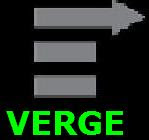Neophobia is the fear of new places, things and experiences. We all have it. It's a natural survival instinct. The fear of new is the reason most people lead a predictable life - do well in high school, graduate from a good college, do work that supports a fraction of a desirable lifestyle until retirement age. Entrepreneurs somehow figure out a way to trick their brains into believing the reward of doing what is new is greater than the predictability of the American dream. However, we are no less fearful than our "life-in-a-bubble" counterparts; we just process fear differently. The hardest decision an entrepreneur will ever make is new.
The implications are too much to deal with:
* Are my competitors leaving me behind?
* Do customers really find what I do valuable?
* Am I charging enough?
* I've been selling the same widget for 10 years, is my service/product ready for a brand new generation of consumers?
* My industry is shrinking, how will I maintain the lifestyle I've created and stay centered on my core values?
* Have I lost touch with why I even got into this business in the first place?
I don't care who you are, none of those questions are easy to answer. Consequently, most people are so afraid that "new" will be the answer to all of those questions that they don't address them until they're looking at a business that no longer represents their vision or values or the out-of-business sign.
Fear of the unknown is most often a fear of misguided or potentially unfulfilled expectations. Changing ones perception to view "new" as a serious of small, consistent steps over the lifespan of the company will dramatically reduce the fatal grip of unqualifiable expectation. In other words, you learn as you do and that makes it easier to do more because you learn more. Success is an algorithm, developed over time that yields predictable and measurable outcomes. Look at any company we consider successful and you can see it. They've found the sweet spot - a risk/reward balance that placates the neophobia that is inherent in all of us. The point of this post isn't to help you find that balance but challenge you to create new algorithms. To do this you need to position in such a way that it is always taking small, calculated steps towards answering the hard questions, which is where opportunity lives. In other words, embrace the fear of "new" and you'll find opportunities. This isn't easy to do but you and I both know it's absolutely detrimental to your survival in this fast-paced, show me why you're worth the money, 50 million people have the same idea economy. I'll leave you with these quotes:“Life can either be accepted or changed. If it is not accepted, it must be changed. If it cannot be changed, then it must be accepted."- Unknown "People always fear change. People feared electricity when it was invented, didn't they? People feared coal, they feared gas-powered engines....There will always be ignorance, and ignorance leads to fear”- Bill Gates